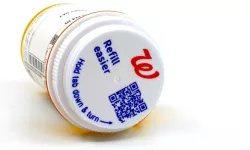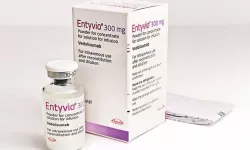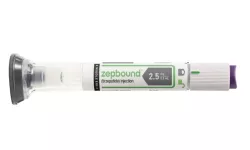Industry News

DALLAS, TX — Steward Health Care, a national fully integrated value-based healthcare system and the largest physician-led hospital operator in the United States, announced that it has commenced an in-court restructuring process through the filing of voluntary petitions for relief under Chapter 11 of the U.S. Bankruptcy Code in the U.S. Bankruptcy Court for the Southern District of Texas. The Company is finalizing the terms of debtor-in-possession financing from Medical Properties Trust for initial funding of $75 million and up to an additional $225 million upon the satisfaction of certain conditions acceptable to Medical Properties Trust.
Steward took this voluntary step today as a necessary measure to allow the company to continue to provide necessary care to its patients in their communities without disruption. Steward does not expect any interruptions in its day-to-day operations, which will continue in the ordinary course throughout the Chapter 11 process. Steward’s hospitals, medical centers and physician’s offices are open and continuing to serve patients and the broader community and our commitment to our employees will not change.
“Steward Health Care has done everything in its power to operate successfully in a highly challenging health care environment. Filing for Chapter 11 restructuring is in the best interests of our patients, physicians, employees, and communities at this time,” said Dr. Ralph de la Torre, Chief Executive Officer of Steward. “In the past several months we have secured bridge financing and progressed the sale of our Stewardship Health business in order to help stabilize operations at all of our hospitals. With the delay in closing of the Stewardship Health transaction, Steward was forced to seek alternative methods of bridging its operations. With the additional financing in this process, we are confident that we will keep hospitals open, supplied, and operating so that our care of our patients and our employees is maintained. By working collaboratively with stakeholders in this court-supervised controlled environment, and having the benefit of our earlier strategic efforts, Steward will be better positioned to responsibly transition ownership of its Massachusetts-based hospitals, keep all of its hospitals open to treat patients, and ensure the continued care and service of our patients and our communities.”
The other primary factor driving this voluntary Chapter 11 case is, in large part, due to Steward continuing to face challenges created by insufficient reimbursement by government payors as a result of decreasing reimbursement rates while at the same time facing skyrocketing labor costs, increased material and operational costs due to inflation, and the continued impacts of the COVID19 pandemic. It is Steward’s goal to resolve the Chapter 11 process as quickly as possible, with the help of the court, with a view to the long-term and sustainable financial health of the system

RESEARCH TRIANGLE PARK, NC and BOSTON, MA — G1 Therapeutics, Inc., a commercial-stage oncology company, and Pepper Bio, the world’s first transomics drug discovery and development company, announced a global licensing agreement (excluding the Asia-Pacific region) for lerociclib for all indications except for certain radioprotectant uses. As Pepper Bio’s first in-licensed therapeutic, lerociclib is a potent and selective inhibitor of cyclin-dependent kinases 4 and 6 (CDK4/6). The therapeutic has previously demonstrated impressive efficacy in clinical studies across various cancer types, including two completed Phase 3 clinical trials in HR+/Her2- metastatic breast cancer.
Today, the most common type of liver cancer, hepatocellular carcinoma (HCC), is the third leading cause of all cancer-related deaths. Using Pepper Bio’s transomics platform, COMPASS, the company was able to identify CDK4 and CDK6 as potentially important targets in treating HCC. Pepper Bio then tested lerociclib in preclinical models, which showed superior efficacy over standard of care during and after dosing. With this in-licensing deal, lerociclib will be Pepper Bio’s first therapeutic on its way to Phase 2 clinical trials.
Pepper Bio’s platform, COMPASS, translates layers of biological maps, including genomics (genes), transcriptomics (RNA), proteomics (proteins), and phosphoproteomics (function of proteins), to offer researchers a complete picture of how diseases impact biology. Setting Pepper Bio apart from other drug discovery platforms is its unprecedented ability to look at the real-time function of proteins in a biological system, as opposed to the current methods of only measuring the presence, type, and quantity of proteins. COMPASS unveils the intricate functions of these proteins, which significantly impact how drugs are built and developed.
"Liver cancer is a real and devastating diagnosis for hundreds of thousands of patients each year. Adding lerociclib into our pipeline is a significant step forward in our mission to find treatments for untreatable diseases," said Jon Hu, Chief Executive Officer and co-founder of Pepper Bio. “Lerociclib holds tremendous promise as a cornerstone of our oncology portfolio, and we are excited to leverage its potential to bring life-saving treatments to those in need."
Pepper Bio will gain exclusive rights to develop, manufacture, and commercialize lerociclib for all indications except for certain radioprotectant uses in the US, Europe, Japan, and all other global markets, excluding the Asia-Pacific region, which G1 has already licensed to Genor Biopharma. G1 Therapeutics and Pepper Bio will collaborate closely to ensure a seamless transition and advance the development of lerociclib through clinical trials and regulatory approval processes. Pepper Bio is now poised to initiate clinical development programs for lerociclib, with the ultimate goal of obtaining regulatory approvals and making lerociclib available to patients as quickly as possible.
Under the terms of the agreement, G1 is expected to receive upfront payments totaling mid-single-digit millions within 12 months and is eligible to receive a maximum of $135M upon achievement of development and commercial milestones in up to three indications. In addition, Pepper Bio will pay G1 a double-digit royalty on aggregate annual net sales of lerociclib.
"Pepper Bio’s commitment to innovation makes them the right partner for advancing lerociclib through the next stages of clinical development,” said Jack Bailey, Chief Executive Officer of G1 Therapeutics. “This agreement is consistent with our corporate strategy to form partnerships that enable global access to our promising oncology therapies; with Pepper Bio, we look forward to the opportunity to realize the full therapeutic potential of lerociclib across new oncology indications."

BENTONVILLE, AR — Walmart made the decision to close all 51 health centers across five states and shut down their virtual care offering, noting that the challenging reimbursement environment and escalating operating costs create a lack of profitability that make the care business unsustainable for them at this time.
From Walmart's news release: "Our priority will be ensuring the people and communities who are impacted are treated with the utmost respect, compassion and support throughout the transition. We do not yet have a specific date for when each center will close but will share as soon as decisions are made. While we will no longer operate health centers, we will take what we learned as we provide trusted health and wellness services across the country through our nearly 4,600 Pharmacies and more than 3,000 Vision Centers. For 40 years, we have provided these high quality, accessible and affordable points of care that are integral to their respective communities."
Over the past few years, the importance of Pharmacies has continued to grow, and Walmart has expanded the clinical capabilities of the services they provide. They will continue to offer immunizations and have grown to provide testing and treatment services, access to specialty pharmacy medication and care, as well as other essential services such as medication therapy management and a variety of health screenings. With more than 4,000 stores in medical provider shortage areas, Walmart stated that their pharmacies are often the front door of healthcare.
Walmart states that they are focused on continuity of care for patients and providing impacted associates with respect and assistance as they begin the closing process of the health care centers. Read the full release here.

LA JOLLA, CA — Enlaza Therapeutics, the first covalent biologic platform company, today announced a $100 million Series A financing. The financing will be used to further develop Enlaza’s proprietary covalent protein technologies and to support advancement of wholly owned pipeline programs to the clinic.
The financing was led by the Life Sciences group of J.P. Morgan Asset Management’s Private Capital division, with participation from existing investors: Frazier Life Sciences, Avalon Ventures, Lightspeed Venture Partners, and Samsara BioCapital. The financing also includes new investors: Amgen Ventures, Regeneron Ventures, Bregua Corporation, Pappas Capital, and Alexandria Venture Investments. Concurrent with the financing, Stephen Squinto, Ph.D., Chief Investment Officer (CIO) of the Life Sciences group of J.P. Morgan Private Capital, was named to the Board of Directors.
“We are thrilled to close this financing with a group of new and existing investors that share our vision of creating a novel, differentiated class of protein therapeutics in oncology and other therapeutic areas,” said Sergio Duron, Ph.D., CEO of Enlaza Therapeutics. “This support will enable continued expansion of our covalent protein drug platform, establishment of a diversified pipeline that demonstrates the broad potential of this approach, and advancement of our lead assets toward clinical development.”
“Bringing covalency to the biologics market is an extremely valuable way to unlock the next generation of protein therapeutics that are safer and more tolerable and can be dosed more frequently with lower doses,” said Stephen Squinto, CIO of Life Sciences group of J.P. Morgan Private Capital. “We believe Enlaza’s platform is well positioned for many first-in-class and best-in-class opportunities and are excited to partner with this senior management team.”
Enlaza’s covalent biologic platform, called War-LockTM, creates highly specific therapeutic warheads that covalently bind to drug targets of interest. This white-space technology enables, for the first time, a covalent-acting protein drug that retains the selectivity of small-format biologics. These unique protein drugs enable specific covalent binding to an intended protein target, improving efficacy while simultaneously reducing toxicities related to sustained peripheral exposure.
The War-Lock platform has broad applications and produces therapeutic candidates with excellent drug-like properties. Protein drugs produced by the platform can be modified to incorporate various payloads and achieve specific delivery to target tissues with high fidelity. Enlaza has generated further preclinical data for its oncology drug candidates supporting the covalent mechanism of action by demonstrating efficient tumor penetration coupled with rapid systemic clearance, high tumor retention, and low off-target liabilities. These data have enabled Enlaza to develop a high-value pipeline of covalent protein drugs.
The company’s Board of Directors is comprised of Stephen Squinto, Ph.D., J.P. Morgan Private Capital; Jamie Topper, M.D., Ph.D., Frazier Life Sciences, Jay Lichter, Ph.D., Avalon Ventures; Shelley Chu, M.D., Ph.D., Lightspeed Venture Partners; Marcos Milla, Ph.D., Samsara BioCapital, and Sergio Duron, Ph.D., CEO, Enlaza Therapeutics.

DEERFIELD, IL — Walgreens is expanding its specialty pharmacy services and investing in its capabilities as the company further grows its core pharmacy business to improve patient outcomes and provide greater value to payers and partners. The company introduced Walgreens Specialty Pharmacy, a holistic offering that expands access to care for patients with complex, chronic conditions and enables partnerships that drive profitability for Walgreens’ pharmacy business. The company is also making investments that will transform its specialty pharmacy offerings, including gene and cell therapy services.
“With approximately $24 billion in annual enterprise specialty revenue, Walgreens Specialty Pharmacy is the largest independent provider that offers the industry's most robust specialty capabilities not vertically aligned with a pharmacy benefit manager,” said Rick Gates, chief pharmacy officer, Walgreens. “We have the flexibility to contract dynamically with any payer. We can partner directly with pharmaceutical manufacturers to facilitate products to market, including limited distribution drugs, and coordinate closely with providers to ensure patients experience a smooth start to treatment.”
Under the new business, Walgreens Specialty Pharmacy is the only specialty pharmacy in the market with the following services and assets at scale:
- Gene and Cell Services Pharmacy and Innovation Center – a dedicated 18,000-square-foot center in Pittsburgh, PA, with services and capabilities for these emerging therapies, including innovative solutions for managing the complexity of the supply chain, logistics and financing as well as clinical and social needs management to ensure success for patients and partners.
- Four central specialty pharmacies – each holding several national pharmacy accreditations – where pharmacists and care teams across the country work together to dispense highly complex medications and help patients manage chronic or rare diseases and conditions. These pharmacies hold distinctions in oncology and rare/orphan conditions and offer patients and caregivers clinical services that drive engagement, adherence and outcomes.
- Nearly 300 community-based specialty pharmacies across the nation – more than any other pharmacy. These specialty pharmacies are strategically located near medical office buildings and health systems, closely aligning care provision with local physicians, offering patients access to specialty medications faster than the industry average, as well as services like injection training, medication side-effect management and financial assistance coordination for medications.
- More than 1,500 specialty-trained pharmacists, 5,000 patient advocacy support team members and dedicated Specialty360 teams that support all specialty condition and therapies.
- A growing roster of 240 limited distribution drugs, including 40 narrow networks and 12 exclusive limited distribution drugs.
- Walgreens Specialty Pharmacy is focused on breaking through healthcare system silos, bringing convenient access to hard-to-find medications and critical adherence support. Building upon the deep, trusted relationships Walgreens pharmacists have with providers and communities, the model enables more comprehensive care to ultimately help payers better manage specialty costs.
Specialty medications today account for more than 50% of prescription drug spend in the U.S.[1] due to the increasing prevalence of chronic disease. There is a need for disease management solutions that are treated by specialty drugs. To advance solutions, Walgreens Specialty Pharmacy enables patient access to specialized treatments through a newly formed integrated care model, driving cost savings and efficiencies in care by uniting the company’s pharmacy teams and distribution network across providers, pharmaceutical manufacturers, health plans and payers.
Walgreens is building on its decades of experience serving the specialty pharmacy needs of commercial, Medicaid, Medicare, and other government and private payers. The company provides services or access to nearly all pharmacy benefit managers and major health plans— as well as alternative payment and service models that help health plans and PBMs differentiate themselves for their clients and members.
Effective August 1, 2024, AllianceRx Walgreens Pharmacy will become Walgreens Specialty Pharmacy. Patients of AllianceRx Walgreens Pharmacy and Walgreens community-based specialty pharmacies now have access to resources that will build upon the expert care they already receive from their specialty pharmacist, including clinicians with key disease state expertise, nutritionists and care nurses. Specialty patients can also view their entire prescription profile at Walgreens, including their retail prescriptions.
“When a patient must confront a life-changing, serious health challenge and begins therapy for a chronic or complex condition, our pharmacists are right there to guide and care for them throughout their healthcare journey —from helping them order and take their medication to identifying financial assistance opportunities and working with their doctor and insurance plan to make sure they’re receiving the most coordinated care,” Gates said.
In addition, Walgreens has seen consistent growth through its wholly owned subsidiary Shields Health Solutions, the nation’s premier health system-owned specialty pharmacy accelerator. Shields specialty model provides integrated care solutions for local health systems and specialty pharmacy patients, working with over 1,000 hospitals across 45 states. The Shields business will continue supporting health systems specialty pharmacies, which complement Walgreens newly enhanced specialty pharmacy offerings.
The launch of Walgreens Specialty Pharmacy is the company’s latest initiative aimed at expanding the role its pharmacy teams play in patients’ lives and bringing their clinical expertise to help payers, providers, pharmaceutical manufacturers and partners deliver critical healthcare. It also further supports Walgreens' efforts to achieve provider status for its pharmacists given their influence and integral role in healthcare delivery.
[1] IQVIA. Global Use of Medicines 2023. https://www.iqvia.com/insights/the-iqvia-institute/reports-and-publicat…

MOUNT PROSPECT, IL — The National Association of Boards of Pharmacy® (NABP®) released a new RogueRx Activity Report, Injectable Weight Loss Drugs: How Illegal Online Drug Sellers Are Taking Advantage of Patients, which explores how bad actors are taking advantage of glucagon-like peptide-1 receptor agonist (GLP-1 agonist) medications "going viral." This class of drugs, including semaglutide, liraglutide, and tirzepatide, is used to treat type 2 diabetes and obesity. Among patients, these drugs are commonly known for promoting weight loss. Unfortunately, because of the drugs' popularity, criminals have seized the opportunity to illegally sell the drugs online, putting patients at risk.
These GLP-1 agonists are in high demand by patients; however, they are expensive and often not covered by insurance. In addition, some dosages of these approved drugs are on Food and Drug Administration's Drug Shortage List, meaning that the available supply cannot meet the current demand. As a result, some patients go online to find these popular medications. Illegal online sellers are exploiting this demand by offering substandard and falsified GLP-1 agonists to vulnerable patients. According to the Partnership for Safe Medicines, substandard and falsified Ozempic® has been found in at least 16 countries to date. In the report, NABP highlights the methods illegal actors use to sell substandard or falsified GLP-1 agonists:
- Criminals sell these drugs online without requiring a valid prescription and without the required pharmacy licenses.
- Some bad actors trick purchasers by mimicking legal sellers' websites, branding, or packaging.
- Others employ a non-delivery scheme, meaning patients never receive the goods they pay for online.
- Sellers may also try to skirt enforcement by advertising drugs as "peptides" with claims that they are for "research purposes only" and "not for human consumption."
Government agencies around the world are actively investigating illegal sellers, and online marketplaces and e-advertising platforms are working to remove illegal drug sellers from their platforms. NABP applauds the efforts of these agencies and organizations.
Learn how you can warn patients against illegal online sellers of GLP-1 agonists by reading the RogueRx Activity Report.

ROCKVILLE, MD and TULSA, OK — Health technology company DrFirst, and PatchRx, a medication adherence company, announced a partnership to close the gap between a healthcare provider’s recommended medication therapy and the patient’s actual medicine-taking behavior.
This collaboration aims to mitigate the health and economic impacts of medication non-adherence, which is linked to approximately 125,000 deaths and nearly $250 billion in healthcare costs annually in the U.S. By combining prescription fill data and remote monitoring data, DrFirst and PatchRx will provide a more accurate view of patient behavior, empowering care managers and quality improvement clinicians to prioritize, monitor, and intervene with high-risk patients for clinical quality improvement initiatives, such as value-based care, chronic care management, and medication therapy management programs.
“There’s a massive data gap in healthcare between when patients fill prescriptions and when patients actually take the medication, resulting in critical adherence oversights. Combining DrFirst’s prescription fill data with our daily adherence insight gives doctors a complete picture of how well a patient is following their prescribed medication regimen with unprecedented granularity,” said Andrew Aertker, co-founder and CEO of PatchRx. “With so many complex medication routines for behavioral health issues or chronic conditions like diabetes and hypertension, this collaboration will go a long way in providing the best technology to support those patients and deliver the precise data providers need to connect with patients proactively and personally.”
PatchRx’s patented, smart pill-bottle technology has gained widespread adoption with high levels of patient engagement. The unique cap fits on the underside of any size pill bottle, gathering information securely for the patient and the patient’s care team.
This technology complements DrFirst’s population risk management solution, which provides the most accurate and clinically actionable medication history for patients enrolled in medication management programs, including prescriptions patients purchase with cash, coupons, or pharmacy prescription savings plans.
“Timing is everything when it comes to effective treatment of complex conditions,” said G. Cameron Deemer, CEO of DrFirst. “Combining our comprehensive prescription fill data with remote monitoring data from PatchRx will give providers the information they need to identify patients who are off schedule with their medications and to intervene early to provide support and prevent health complications.”

WASHINGTON, DC — The Department of Health and Human Services (HHS) issued a final rule revising the administrative dispute resolution (ADR) process under the 340B program. This final rule will apply to all drug manufacturers and covered entities that participate in the 340B Program, addressing the requirements and procedures for the 340B Program’s administrative dispute resolution (ADR) process.
According to the American Hospital Association, the ADR process allows all 340B-covered entities — regardless of the size of the organization or monetary value of the claim — to address claims at dispute with drug companies.
"The final rule contains several important process improvements, including a clear timeline for when ADR decisions must be made and an opportunity for reconsideration when parties are dissatisfied with the initial ADR decision," AHA General Counsel Chad Golder said. "The AHA is particularly pleased that the final rule makes clear that an overcharge claim includes instances where a drug company has limited a hospital's ability to purchase 340B drugs at or below the 340B ceiling price. This rule will help hold drug companies accountable for their rampant abuses of the 340B program and the patients it serves."
“340B Health is pleased that HRSA’s (Health Resources & Services Administration) final rule aligns with several of our recommendations for revisions and clarifications to the agency’s proposed rule," Maureen Testoni, president and CEO of 340B Health, said."We are particularly encouraged by the final rule clarifying that a covered entity’s ADR claims can include accusations that a drug company has limited the ability to purchase drugs at or below the 340B ceiling price and removing a proposed amendment to block ADR consideration of a claim similar to an issue pending in federal court. HRSA’s removal of potential conflicts of interest and unnecessary legal barriers are additional positive steps that will simplify and streamline the dispute resolution process for the benefit of all participants.”
This rule, which may be viewed in full here, will come into effect on June 18, 2024.

CAMBRIDGE, MA – Takeda (NYSE:TAK) announced that the U.S. Food and Drug Administration (FDA) has approved ENTYVIO® (vedolizumab) subcutaneous (SC) administration for maintenance therapy in adults with moderately to severely active Crohn’s disease (CD) after induction therapy with intravenous (IV) ENTYVIO.1 The subcutaneous administration of ENTYVIO was also approved by FDA in September 2023 for the maintenance treatment of adults with moderately to severely active ulcerative colitis (UC) and is available in the U.S. as a single-dose prefilled pen (ENTYVIO Pen).*
The approval is based on the VISIBLE 2 Study (SC CD Trial), a Phase 3, randomized, double-blind, placebo-controlled trial, which assessed the safety and efficacy of an SC formulation of ENTYVIO as maintenance therapy in adult patients with moderately to severely active CD who had clinical response** at Week 6 following two doses of open-label vedolizumab intravenous therapy at Weeks 0 and 2.1 The primary endpoint was clinical remission*** at Week 52, which was defined as a total Crohn’s Disease Activity Index (CDAI) score of ≤150.
“Crohn’s disease is a complex and usually progressive disease for which an appropriate management plan is critical. My primary goal as a clinician is always to get patients to achieve remission. In VISIBLE 2, about half of patients treated with ENTYVIO SC achieved long-term clinical remission,” said Timothy Ritter, MD, senior medical director, Department of Research and Education, GI Alliance Research and assistant professor of medicine, TCU School of Medicine. “The data from VISIBLE 2 reaffirm the well-established efficacy profile of ENTYVIO, regardless of route of administration.”
In VISIBLE 2, a total of 409 patients were randomized at Week 6 in a double-blind fashion (2:1) to ENTYVIO 108 mg administered by SC injection or placebo every 2 weeks.1 Eligible patients included patients who had experienced an inadequate response to, loss of response to, or intolerance to at least one of the following: corticosteroids, immunomodulators (azathioprine, 6-mercaptopurine, or methotrexate), or tumor necrosis factor (TNF) blockers (including primary non-responders).
A statistically significant proportion of patients receiving ENTYVIO SC 108 mg maintenance therapy administered every 2 weeks achieved long-term clinical remission*** compared to patients receiving placebo (48% vs. 34%; p<0.01) at Week 52.1 In clinical studies, the ENTYVIO SC safety profile was generally consistent with the known safety profile of ENTYVIO IV, with the addition of injection site reactions (including injection site erythema, rash, pruritus, swelling, bruising, hematoma, pain, urticaria and edema) as an adverse reaction for ENTYVIO SC. The most common adverse reactions reported with ENTYVIO IV (incidence ≥3% and ≥1% higher than placebo) were nasopharyngitis, headache, arthralgia, nausea, pyrexia, upper respiratory tract infection, fatigue, cough, bronchitis, influenza, back pain, rash, pruritus, sinusitis, oropharyngeal pain, and pain in extremities.
“The approval of subcutaneous ENTYVIO in Crohn’s disease delivers on our goal of providing treatment options that can help patients achieve remission of their ulcerative colitis or Crohn’s disease, while also providing them flexibility and choice of route of administration. With ENTYVIO Pen, patients have the option of administering their maintenance treatment at home or on the go,” said Brandon Monk, senior vice president, head, U.S. Gastroenterology Business Unit, Takeda. “Our development of a subcutaneous option demonstrates Takeda’s commitment to meeting the very real needs of those living with gastrointestinal diseases.”
*Please refer to “U.S. FDA Approves Subcutaneous Administration of Takeda’s ENTYVIO® (vedolizumab) for Maintenance Therapy in Moderately to Severely Active Ulcerative Colitis”, dated September 27, 2023.
**Clinical response is defined as a ≥70-point decrease in Crohn’s Disease Activity Index (CDAI) score from baseline (Week 0).1
***Clinical remission is defined as CDAI score of ≤150 at Week 52.1

INDIANAPOLIS, IN – Eli Lilly and Company (NYSE: LLY) announced positive topline results of the SURMOUNT-OSA phase 3 clinical trials that showed tirzepatide injection (10 mg or 15 mg) significantly reduced the apnea-hypopnea index (AHI) compared to placebo, achieving the primary endpoints. Percentage change in AHI was a key secondary endpoint in both studies. AHI records the number of times a person's breathing shows a restricted or complete block of airflow per hour of sleep and is used to evaluate the severity of obstructive sleep apnea (OSA) and the effectiveness of treatment outcomes. Tirzepatide is the only approved GIP (glucose-dependent insulinotropic polypeptide) and GLP-1 (glucagon-like peptide-1) treatment for chronic weight management, commercialized as Zepbound® in the U.S. and Mounjaro® in some global markets outside the U.S.
SURMOUNT-OSA Study 1 evaluated tirzepatide in adults with moderate-to-severe OSA and obesity who were not on positive airway pressure (PAP) therapy for 52 weeks. For the efficacy estimandi, at 52 weeks, tirzepatide led to a mean AHI reduction from baseline of 27.4 events per hour compared to a mean AHI reduction from baseline of 4.8 events per hour for placebo. In key secondary outcomes, tirzepatide led to a mean AHI reduction from baseline of 55.0% compared to 5.0% from baseline for placebo; tirzepatide also led to a mean body weight reduction of 18.1% from baseline, compared to 1.3% from baseline for placebo.
SURMOUNT-OSA Study 2 evaluated tirzepatide in adults with moderate-to-severe OSA and obesity who were on and planned to continue to use PAP therapy for 52 weeks. In this population for the efficacy estimand, at 52 weeks, tirzepatide led to a mean AHI reduction from baseline of 30.4 events per hour compared to a mean AHI reduction from baseline of 6.0 events per hour for placebo. In key secondary outcomes, tirzepatide led to a mean AHI reduction from baseline of 62.8% compared to 6.4% from baseline for placebo; tirzepatide also led to a mean body weight reduction of 20.1% from baseline, compared to 2.3% from baseline for placebo.
The weight loss observed at 52 weeks with tirzepatide (10 mg and 15 mg) across the two studies was nearly 20% in a patient population that was comprised of approximately 70% males, who are known to achieve less weight loss with incretin therapy than females.
OSA is a sleep-related breathing disorder characterized by complete or partial collapses of the upper airway during sleep, which can lead to apnea or hypopnea and a potential decrease in oxygen saturation and/or waking from sleep. OSA can have serious cardiometabolic complications, contributing to hypertension, coronary heart disease, stroke, heart failure, atrial fibrillation and type 2 diabetes.
"OSA impacts 80 million adults in the U.S., with more than 20 million living with moderate-to-severe OSA. However, 85% of OSA cases go undiagnosed and therefore untreated," said Jeff Emmick, MD, Ph.D., senior vice president, product development, Lilly. "Addressing this unmet need head-on is critical, and while there are pharmaceutical treatments for the excessive sleepiness associated with OSA, tirzepatide has the potential to be the first pharmaceutical treatment for the underlying disease."